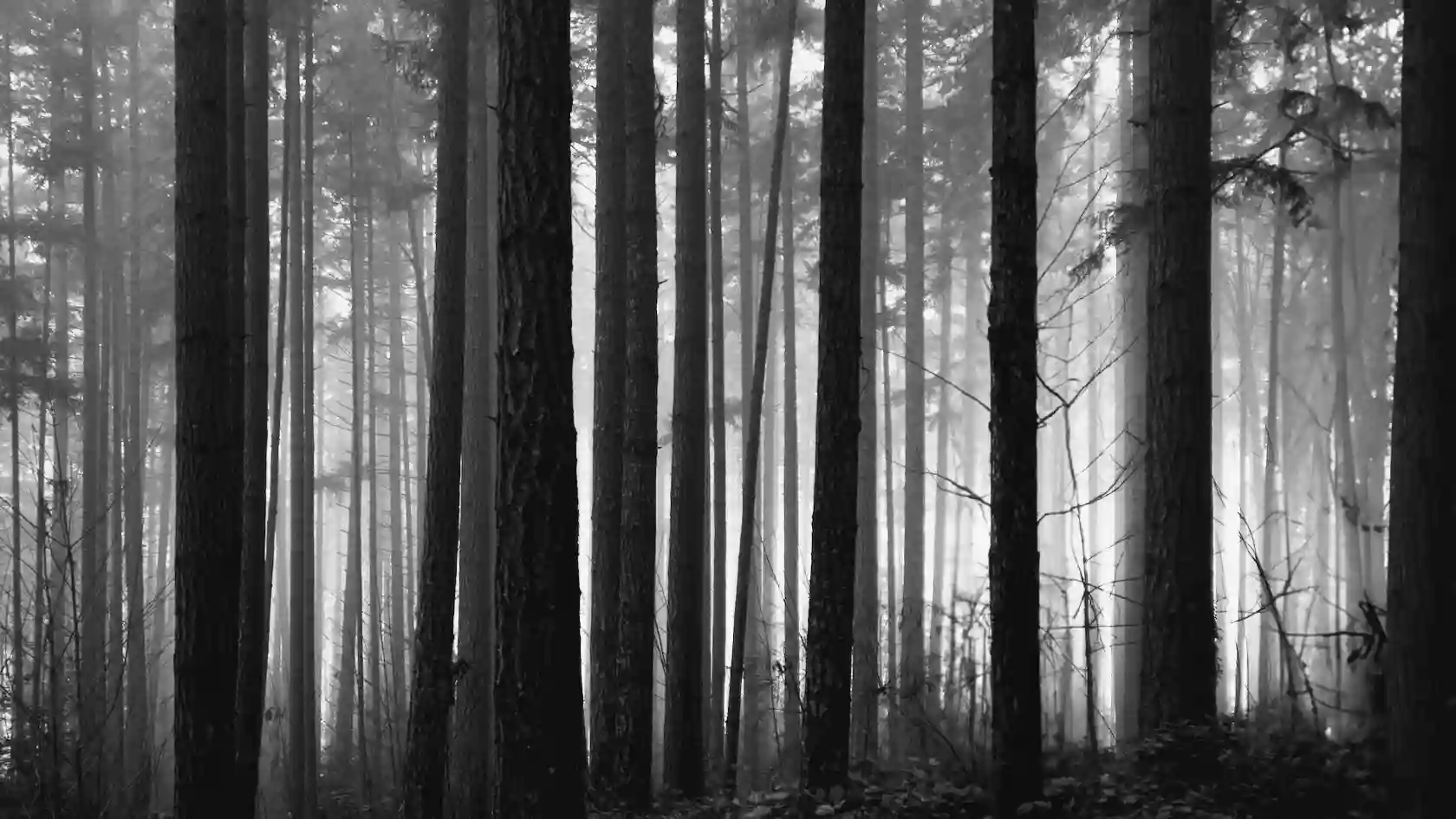Have you ever noticed that unique, refreshing scent that fills the air just as rain begins to fall, especially after a long, dry spell? It's a smell that, for many, brings a sense of calm and a deep connection to nature. That very particular aroma, which so many of us recognize and appreciate, actually has a beautiful name and a fascinating scientific story behind it, you know? It's a little secret the earth shares with us, and it's almost like a tiny celebration of water returning to dry ground, in a way.
This wonderful scent isn't just a figment of our imagination; it's a real, tangible phenomenon. It's something scientists have studied, and even artists and perfumers have tried to capture its essence. So, it's not just a pleasant smell; it's a complex interaction of natural elements coming together right before our very noses, pretty much.
We're going to take a closer look at this captivating aroma, often called the smell of rain. We'll explore where its name comes from, what makes it happen, and why it holds such a special place in our senses. It's a rather interesting journey into something we experience often but might not fully understand, honestly.
Table of Contents
- What is Petrichor, Anyway?
- The Birth of a Beautiful Word
- The Science Behind the Scent
- Why We Love the Smell of Rain
- Frequently Asked Questions About Petrichor
- Appreciating the Next Rain
What is Petrichor, Anyway?
So, petrichor, that's the scientific name for the smell of rain when it falls on dry ground. It's a rather distinctive, earthy, and usually quite pleasant odor. This aroma typically appears after a warm, dry period, which is that, when the ground has been parched for some time. It's not just the rain itself, but the interaction of the rain with the dry earth that creates this unique fragrance, you see.
This particular scent has been something scientists and even perfumers have chased for a very long time. Its enduring appeal is quite remarkable. People often describe it as fresh, clean, and grounding, and it's a smell that many find deeply comforting, to be honest.
The smell actually comes from the moistening of the earth. It's not magic, but a really neat chemical process. When those first raindrops hit the parched soil, they trigger a release of certain compounds into the air, creating the very scent we recognize, you know.
The Birth of a Beautiful Word
The name "petrichor" itself is pretty interesting. It was coined by two Australian researchers, Isabel Joy Bear and Richard Grenfell Thomas. They introduced this word in 1964, in a paper they published, which was perhaps the first to really delve into this specific scent, as a matter of fact.
These two scientists, Isabel Bear and Dick Thomas, gave us this lovely term. Before their work, people certainly noticed the smell of rain, but there wasn't a widely recognized scientific name for it. Their research helped to formalize our understanding of this natural phenomenon, which is rather important.
The word was actually put together from ancient Greek roots. It's a blend of two very old terms. This gives the word a timeless quality, connecting modern science with ancient language, in a way.
A Look at the Roots
The first part of the word, "petr-", comes from the ancient Greek word "pétra", which means 'rock', or "pétros", meaning 'stone'. So, it directly relates to the earth itself, to the very ground that the rain falls upon, you know.
The second part, "ichor", comes from "ikhṓr". In ancient Greek mythology, ichor was the ethereal fluid that flowed as the blood of the gods. It was seen as a divine, pure substance, something otherworldly and very special. So, combining 'rock' or 'stone' with this 'divine fluid' gives "petrichor" a rather poetic and almost mystical meaning, doesn't it?
This naming choice highlights the special, almost magical quality of the smell of rain. It suggests that the earth, like the gods, has its own unique, precious essence that is released when touched by water. It's a rather beautiful way to describe something so common yet so profound, I mean.
The Science Behind the Scent
The aroma of petrichor isn't just one thing; it actually comes from a mixture of chemicals. It's a complex blend that involves several components interacting with each other. This is why the smell is so distinctive and often quite pleasant, you see.
One of these odors, called petrichor, lingers when rain falls after a prolonged dry spell. This smell actually comes from the moistening of the earth. When the dry ground gets wet, it releases these compounds into the air, making that familiar scent, basically.
Scientists have spent a good deal of time figuring out what exactly makes up this smell. It's not just water hitting dirt; there's a whole lot more going on at a microscopic level. It's a really neat example of how simple natural events can have complex chemical explanations, I mean.
Geosmin: Earth's Perfume
A major player in the smell of petrichor is a chemical called geosmin. This compound is produced by certain types of bacteria and algae found in the soil, particularly a group called actinobacteria. These tiny organisms are constantly working in the ground, and they release geosmin as a byproduct of their activities, in a way.
When rain hits the dry soil, it traps tiny air bubbles. These bubbles then float up and burst, releasing the geosmin and other compounds into the air as aerosols. It's like the rain is helping the earth breathe out its scent, which is rather interesting.
Geosmin has a very strong, earthy odor. Humans are incredibly sensitive to it; we can detect it at extremely low concentrations. This is why we can smell petrichor so easily, even when there's just a little bit of rain, you know. It's a powerful component of that distinct "earthy" smell, too.
Ozone: A Hint of Freshness
Another contributor to the petrichor scent is ozone. Ozone is a molecule made of three oxygen atoms. It's often associated with a clean, fresh smell, like after a lightning strike during a thunderstorm. The effect of lightning can produce ozone in the atmosphere, and this can add to the overall aroma of rain, sometimes.
While geosmin provides the deep, earthy base, ozone can add a lighter, sharper, almost "electric" note to the smell. This combination creates a richer, more complex scent profile. It's not just one single smell, but a whole symphony of aromas, more or less.
So, as the rain falls and perhaps lightning flashes, these different elements combine to create the full experience of petrichor. It's a very dynamic process, and the exact mix can vary depending on the conditions, apparently.
The Moistening Effect
It's important to remember that petrichor actually comes from the moistening of the earth. It's not just the rain itself that smells, but how the rain interacts with the dry ground. The dry soil, with its accumulated compounds from bacteria and plants, is key, you see.
When rain falls on dry soil, it produces an earthy scent called petrichor. The impact of the raindrops on porous surfaces, like soil or concrete, traps tiny air pockets. These air pockets then release aerosols containing the scent compounds, lifting them into the air for us to smell, literally.
This process is particularly noticeable after a prolonged dry spell because the ground has had more time to accumulate these scent-producing compounds. The longer the dry period, the more pronounced the petrichor can be, in a way. It's a rather simple yet profound interaction between water and earth, to be honest.
Why We Love the Smell of Rain
The enduring appeal of petrichor is quite strong. Many people find the smell incredibly pleasant and comforting. This connection might be rooted deep in our evolutionary past, as rain often meant life and relief from drought for our ancestors, you know.
The scent has long been chased by scientists and even perfumers for its enduring appeal. There's something about it that resonates deeply with us. It's a smell that can evoke feelings of renewal, freshness, and the cleansing power of nature, which is rather nice.
It's a universal experience, too. People all over the world recognize and appreciate this unique aroma. It's one of those subtle joys that nature offers, a little reminder of the cycles of weather and the vitality of the earth, basically. It's a truly human-centric experience, I mean.
The smell can also trigger memories, perhaps of childhood, or of specific moments. It's a very evocative scent. So, it's not just a chemical reaction; it's an emotional and sensory experience that connects us to the world around us, apparently.
To learn more about natural phenomena on our site, you can explore other interesting articles. And if you're curious about the broader topic of environmental science, there's more information available.
Frequently Asked Questions About Petrichor
What causes the smell of rain?
The smell of rain, known as petrichor, comes from a mixture of chemicals. These include geosmin, which is produced by certain bacteria and algae in the soil, and sometimes ozone, which is created by electrical discharges like lightning. The smell is released when raindrops hit dry ground, trapping and then releasing these compounds into the air, you know.
Who named petrichor?
The name "petrichor" was coined by two Australian researchers. They were Isabel Joy Bear and Richard Grenfell Thomas. They introduced the term in a scientific paper published in 1964, so it's a relatively modern word for a very old smell, in a way.
Is petrichor a pleasant smell?
Yes, petrichor is generally described as a distinctive, earthy, and usually pleasant odor. Many people find it very refreshing and comforting. Its enduring appeal has even led scientists and perfumers to try and replicate it, which is rather telling, I mean.
Appreciating the Next Rain
The next time rain falls after a dry spell, take a moment to truly appreciate the scent of petrichor. It's more than just a smell; it's a complex interplay of geology, biology, and meteorology, all working together to create a truly remarkable sensory experience. It's a little gift from the earth, basically, and it's a very simple pleasure.
This enduring aroma, which has been chased by scientists and perfumers for its appeal, is a reminder of the subtle wonders all around us. It's a very common occurrence, yet knowing its story can make it feel even more special. So, next time, breathe it in, and remember the fascinating science behind that lovely, earthy scent, you know?
Detail Author:
- Name : Chase Considine
- Username : ward.afton
- Email : fannie79@corkery.com
- Birthdate : 1985-04-18
- Address : 3789 Koelpin Terrace Tillmanberg, SC 31035-6714
- Phone : 206-486-7430
- Company : Funk-Klein
- Job : Automotive Technician
- Bio : Ea consequatur incidunt omnis et quae qui porro. Accusamus cumque nihil aut accusamus. Voluptatem delectus deserunt aliquid sed culpa quia.
Socials
twitter:
- url : https://twitter.com/alankoepp
- username : alankoepp
- bio : Pariatur earum nobis sit voluptate nulla molestiae earum. Quo ut illo et qui consectetur magnam laudantium. Et incidunt ut fugiat odit quia tempore quos sed.
- followers : 5106
- following : 1884
facebook:
- url : https://facebook.com/koeppa
- username : koeppa
- bio : Autem velit eligendi qui dignissimos perferendis quasi consequatur.
- followers : 6180
- following : 2297


